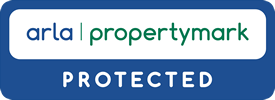Latest news and updates
Blog
-

Key Budget Announcements
Rachel Reeves has delivered her first budget, unveiling significant measures that have both direct and indirect implications for our clients. Here…
-

How to Bleed Your Radiators
Eliminate Trapped Air for Optimal Radiator Performance Bleeding your radiators constitutes a vital aspect of preserving your heating system’s efficiency.…
-

How to Defrost Your Boiler's Condensate Pipe
Maintaining your boiler’s efficiency during the winter months is crucial, and understanding how to thaw your condensate pipe is a…
-

How to Repressurize Your Boiler
Maintaining optimal pressure in your boiler is essential for its efficiency and longevity. One crucial aspect of boiler upkeep is…
-

The Importance of Turning Off Your Outdoor Taps in Winter
Winter brings with it the risk of frozen pipes and costly leaks for many homeowners. One of the most effective…
-

A Comprehensive Guide to Buying Your First Home in the UK
Purchasing your first home is a significant milestone, and it’s an exciting journey filled with opportunities and challenges. The UK’s…
-

The Benefits of Using a Local Estate Agent vs. Online Platforms
In today’s digital age, there’s no shortage of online platforms and property portals that promise to make buying or selling…
-

The Importance of EPC Ratings for Home Sellers and Buyers
Energy Performance Certificates (EPCs) are a vital part of the property market in the UK, offering valuable insights into a…
-

Guide to the Conveyancing Process in the UK
The conveyancing process is an integral part of buying or selling property in the UK. Whether you’re a first-time buyer…
- 1
- 2








